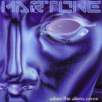Hello Guitar Nine readers. Dave Martone here. Hope you had a great two months of practicing and recording. This time I am going to blab about whether or not to master your recordings.
First of all, what is "Mastering" you ask? It means to put the finishing touches on your mixes to make them sound complete and larger than life!
At first, I thought that I did not need it and that it was a waste of time. My first EP "Feel the Silence" and also "Shut up "N" Listen" were not mastered. However "Zone" and "Synesthesia" were.
I had some great realizations on what it is, and what it means to your music.
The Mastering Engineer is a different person than the recording and mixing engineer. Their job is to make your tracks sound as punchy, clean, crisp and loud as possible without sacrificing the mix that you came to he or she with.
Most of these engineers work on a computer system with very expensive monitors and computer plug-ins or outboard effects. (Outboard effects are rack gear). Some of your songs may have been recorded at different studios and they have to make them sound sonically similar so that the whole disk has a certain cohesiveness. Please realize that if you are giving the engineers a crappy sounding recording to start with that he cannot work a miracle. They will take any format usually. The most preferred today is a Pro Tools wave file. The other formats that they will take is a CD or a regular wave file at usually 44.1 kHz and either 16 or 24 bit resolution, Please note that if a 48khz file is given a very large digital calculation has to be done on a professional system to get it to 44.1 which is standard cd resolution. It takes approx 30 minutes for a 6-minute song to do this calculation. They also take 1/4 reel-to-reel analogue tape, as well as cassette tape in the worst situation.
Some of the tools they use (not in any particular order) are multi-band compressors, which compress different frequencies at different ratios, graphic and parametric equalizers, limiters, ultra-maximizers and spectrum enhancers to make the mixes have a wider stereo spectrum than normal. A great engineer knows how to make all of this processing sound natural and like all of the great music that we buy and listen to on a daily basis.
There are many home devices to use to master right on your PC or Mac. One in particular is by T-Rax. This is a piece of software with presets to help you get your mixes sounding satisfactory. Please be aware that it is difficult to know what to tweak if you are not familiar with what each stage of the software does. The best thing to do is to check your mix with that of an artist that you are trying to sound close to. A/B your mix with the pro's to check bass levels, high-end levels and clarity.
I have done some mastering myself but realize that we are paying the pros for their experience and knowledge on how to make our mixes sound the best that they can be. How much are we paying do you ask? An average rule of thumb that I have found in Vancouver is approximately $50.00 to $80.00 per song. This is not a lot in retrospect, since you have spent so much time, energy and money to get the song recorded in the first place. Why not go the extra bit to get it sounding PRO!
Please be forewarned that some mastering engineers do not like you in the control room while they are doing the work. The have their "secrets", so don't feel insulted if this happens. You can always make suggestions before and after. Also give them a hint of what you would like it to sound like. For example bring along your favorite disk that you love the sound of for them to listen to. Please remember again that they cannot work miracles if they are given an inferior product. One last hint is to make sure that the kick and bass are loud enough in your mixes because it is easier for them to bring it down that bring it up in the mix.
May the tone be with you.
David Martone is a guitarist from Vancouver, Canada who has released seven solo CDs which showcase his musical diversity and brilliant guitarmanship.
His 2007 CD is entitled "When The Aliens Come", which features a progressive sound incorporating jazz, rock, fusion and metal influences.
